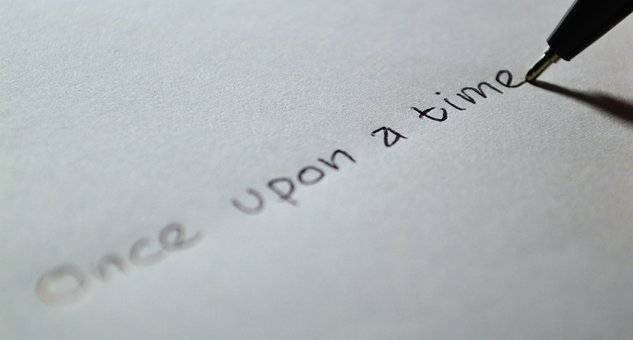Writers at a certain age or experience level in their career undergo Writer’s block, where their brain stops producing new ideas. Having a writer’s block is quite a dreadful experience for a person whose entire life revolves around imagining new ideas and penning them down. And often, those individuals are seen spending their lives quite in distress. Some also question, “Are writer’s block and depression connected?”
Is writer’s block a real thing? What causes writer’s block?
It is quite debatable whether to treat writer’s block as a real thing or not. However, because writing requires dealing with loads of ideas and channeling them into words, it becomes tiring most of the time.

Here you will find some of the common reasons that can be the probable cause behind writer’s block:
- Perfectionism: As a writer, it is completely normal to want to present your best self out there. But at times, this form of normal makes it harder. A sense of perfectionism starts to replay in the mind of a writer, making him analyze every word. And that is when these people end up with a blank page. Because all this time, these people were busy writing and erasing their thoughts.
- Critically analyzing one’s writing: Quite similar to the point above, but here the writer is busy analyzing his written piece. Also, they end up comparing their work with others and feel like something is missing. That way, these people discard the pre-written ideas, and there are no new ideas for them to look upon.
- Too many projects: Writing continues to be a creative aspect and, most importantly, a form of art. But for a living, writers do end up getting hired by a firm with multiple deadlines doing rounds. And that makes them anxious and burdened about the quality and quantity simultaneously.
Writer’s block types – Are writer’s block and depression connected?
Just like the reasons, there are various types of writer’s block. The intensity of the same does differ based on the writer’s mental state and coping mechanism.

So let’s have a look at the same:
- It is hard to come up with new ideas: It is like you are caught up in a situation, and the output of all times is a blank page. They are not having any clue about how to start or from where to start? Most writers undergo this type of situation at least once in their careers.
- There is a flow of maximum ideas, but you cannot commit to anyone in particular: Another form of writer’s block is where you have a lot of ideas making rounds in the head, but it gets impossible to vouch for one.
- You are in the middle of a project but unable to figure out what happens next: It occurs when you are dealing with multiple projects at once and find it difficult to maintain focus.
- You are bored of this regular writing pattern: Writers get bored when doing the same job for multiple years and lose out on their writing spark. They find it difficult to develop new ideas from the same writing brief.
- Self-criticizing thoughts stop you from writing: You have learned about the same before. Often self-criticizing thoughts make it difficult for the writers to develop new ideas they think are worthy of presentation.
Are writer’s block and depression connected?
So far, it was all about you dealing with the overview of writer’s block, trying to figure out its symptoms and adequate types. Now, let’s help you with the main question in concern, “Are writer’s block and depression connected?”
For that, there might not be a definite answer. However, a writer’s surroundings do help shed some light on the same.
- Probably because writers are the ones examining the surroundings and penning down thoughts. They do make it a point to elaborate on incidents and objects, both good and bad. That is how one absorbs images and ideas in their head. And this can often lead to overburdening of senses making the person feel melancholy and fall into a depressive state.
- Also, writing needs one to stay away from the chaos and spend hours in a room alone. This can be quite depressing, and most of the time, the person remains aloof from reality. This brings in the sense of mixed emotions making the writer struck by loneliness and fearful of the outer world.
A similar notion for artistic inspiration was popular as “Furor Poeticus” in ancient Greece. The creative person was thought of as surrounded by an overwhelming feeling of joy and happiness. Also, the people believed that the Gods were sending him those creative ideas from their minds. You will find great philosophers like Plato, Theocritus, Phaedrus, Aristotle, and Pindar argue for such an existence.
I have writer’s block what do I do?
So, now it is time to help you escape such a situation and return to normal. Consider practicing the things mentioned below, and you will do great.

- Give writing another shot: You cannot let your fear get into your brain. Remember the time when you chose writing over everything else and how it did inspire you to pen down emotions like no one? So pack your notebook or tab and start writing it out. Give it a shot. Take it day by day. Practice it every day, and never give up on yourself.
- Find out ways that make you creative: Apart from writing, you must also be good at other things. It can be art, dancing, singing, riding a bicycle, driving a car, etc. Focus on those for the time being, and then come back to your desk at the end of the day. You will have new ideas to share in the form of words. Thus serving as a natural reserve for your writing process.
- Work on your time management skills: When you have been related to the same job for years, things get mundane. Thus inflicting procrastination and loss of time. Also, our habits are often dysfunctional, causing us to lose out on the time game. Be mindful of your duties, devise a fixed schedule, and work along. When you are on time, there will be fewer chances to hurry up and lose your mind.
- Read new things: A writer’s life is all about pouring his heart out on a piece of paper. That way, it requires one to read new things and build up their thought process. So make it a habit to indulge in mindful reading for at least half an hour daily and reapply those learnings in your writing as relevant.
- Occupy your brain with mindfulness and healthy affirmations: “You are worthy,” “You can do this,” it is just a phase, and it shall pass.” These are the affirmations you shall be practicing daily. Also, indulge in the art of good living and practice various mindfulness tactics.
- Practice journaling: Pen down your thoughts in your journal. This can be anything related to your personal life, how you feel, and whether someone is special around you. That way, you can keep track of your thoughts and mark up days that make you feel like giving up on writing.
- Get into physical activities: Get up early and go for a run, or you can practice yoga, hit the gym, take swimming lessons or join a Zumba class. All these will help your body be in sync with your brain and produce content as needed.
Every writer once in his life faces writer’s block. However, with thorough determination and high willpower, one will be able to overcome the same.



